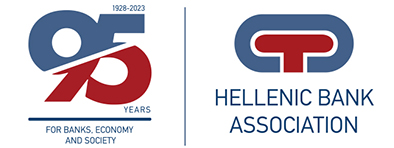
Press Release
- 25 May 2022
Highlights from the EBF board
Stepping up to challenges, building a resilient Europe
The EU has faced two black swan events in the past years: the Covid-19 pandemic and the war in Ukraine. During the Covid crisis, banks helped families and businesses navigate the unexpected and proved to be solid and reliable partners for Europe’s regulators and authorities. The Russian invasion of Ukraine has now triggered a devastating humanitarian crisis and ushered in a new economic and geopolitical reality. The aftershocks of Russia’s attack continue to reverberate across Europe and the world, including the banking community.
Looking to the future, the situation will remain challenging. According to the latest forecast by the European Commission, growth in the EU economy will be lower, and inflation higher. Now more than ever, our focus must be on building a resilient economy that serves all businesses and people. To help finance this, banks need a future-focused regulatory framework and rules based on a clear, long-term vision that serves the needs of European citizens and economy.
- 28 June 2021
The Hellenic Bank Association informs all card holders on the retention of contactless payments up to 50 euros without the use of PIN
Following the HBA announcement dated 23rd March 2021, its member banks, being consistent with their commitment for continuous assistance in limiting the impact of Covid-19 on public health and trading practice, will permanently preserve as of 1st July 2021 the contactless payment limit up to 50 euros without the use of PIN.
- 28 May 2021
EBF BOARD COMMUNIQUE
EBF calls for next steps to strengthen economic recovery in Europe
- Measures must evolve from addressing immediate liquidity needs toward increasing solvency support for viable firms
- The ability of European banks to compete at global scale should be ensured for the sake of a stronger European economy
- Basel III should be implemented in Europe with no significant
BRUSSELS, 28 May 2021 – The Board of the European Banking Federation (EBF) today reiterated that European banks stand ready to continue supporting businesses and households amid growing uncertainty over the pace of the economic recovery. The EBF board also highlighted the need to evolve the policy response to ensure a ‘soft landing’ to the new normal and expressed confidence in governments’ commitment to avoid a ‘cliff-edge’ effect.
The swift policy responses combined with the positive contribution of banks has helped ensure the flow of liquidity and credit throughout the pandemic. It also shows that when regulators, banks, governments, and Central Banks work together, the combined result is effective.
- 31 March 2021
Special bank holiday for interbank transactions in the Greek financial system on 2nd and 5th April 2021
The Trans-European Automated Real-time Gross settlement Express Transfer system (TARGET2 system) will be closed on 2nd and 5th April 2021, i.e. on Good Friday and οn the second day of Catholic and Protestant Easter respectively. Said days do not coincide with bank holidays within the Hellenic territory and therefore, in accordance with Article 11 of Law 3336/2005, these are days of special bank holiday and the provisions of said Article will apply.
- 30 March 2021
Strong Customer Authentication - FAQs
Q1: During the last months I have noticed changes in the approval process of my transactions, when I use my payment card for purchases from e-commerce companies in Greece and abroad. Why is this happening?
As of January 2021, the "Strong Customer Authentication" process was launched at a pan-European and national level. This is a mandatory process in order to protect the consumer when he/she carries out a card-based payment transaction with an e-commerce company in Greece or within the Single Economic Area (i.e. an trader-commerce company operating in a Member-State of the European Union, Norway, Iceland and Liechtenstein). As of 1st January 2021, the Single Economic Area does not include the United Kingdom, whose e-commerce companies are treated as third-country ones (such as, but not limited to, e-commerce companies in the USA, Australia, China, etc.)







